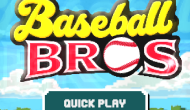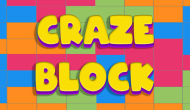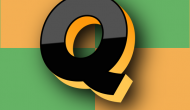Idiom Hunt
Logical puzzles are almost as old as human intelligence and we have been solving them ever since. The increasing complexity of modern life has made logical puzzles more challenging than ever with new intricacies popping up every day. In the age of technology, logical puzzles now refer to crossword puzzles, sudokus, brain teasers and tick-tricks. These types of puzzles use logic to test your cognitive ability to think logically and solve a difficult riddle or problem in an instant. Problem solving is a very important skill that helps in strengthening memory, critical thinking and impulse control. Problem solving is one of the 10 brain training exercises identified by Dr. Steven Fienberg for helping people build new neural pathways after reading about it in his book “Think Train Faster: Brain Games You'll Love”.
Logical thinking is the process of reasoning and analyzing in a logical manner. This type of thinking requires you to be aware of the rules of logic, and also its implications on your thinking. If you’re not proficient at logical thinking, it can have a negative impact on your life. For example, you might assume that everyone feels the same way about certain subjects or situations. Your assumptions might not be true for everyone, but if you are not careful with your thinking, this could lead to unneeded troubles in your life. Logical thinking can be challenging if you’re not used to it. However, with practice and patience; once you get used to it, logical thinking becomes automatic. Logical thinking will help you make better decisions in many areas of your life.
Logic is a branch of mathematics that involves logical judgement. As such it has a number of applications including mathematics, philosophy, formal logic and computer science. Logic is often studied in formal logic or Aristotelian logic as part of logical system. In informal terms we might speak about ‘good reasoning’, ‘logical thinking’ or simply ‘making sense’. Although the term logical is generally used in its strict mathematical sense, the word can be used in other contexts as well, in conversations where you find yourself discussing something logically problematic but you don't know what to call it; see also: Idiom Hunt.
Logic is a system of reasoning. The ways in which we reason have been categorised as formal logic and informal logic. Formal logic involves using strict rules while informal logic involves common sense and intuition. These logical systems are useful in different situations, making logical thinking a valuable tool. This article explains logical thinking using various idioms. Read it to understand the logic behind what you read in newspaper, magazines or books, and also as an understanding exercise for your own cognitive thoughts.
In an age of fast-paced digital communication, both written and spoken, we are quick to use idioms that sound more fluent than they actually are. The result is a lot of incorrect use of the English language. To help you avoid such faux pas while speaking or writing English, here you will find some helpful expressions that are more commonly used as clichés than their literal.
How to play Idiom Hunt
Using Mouse










